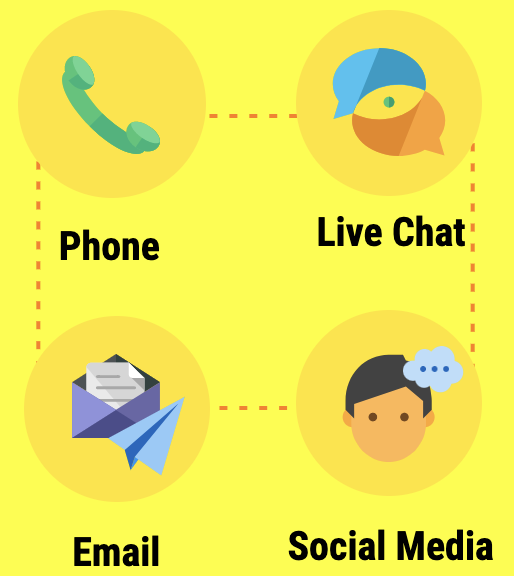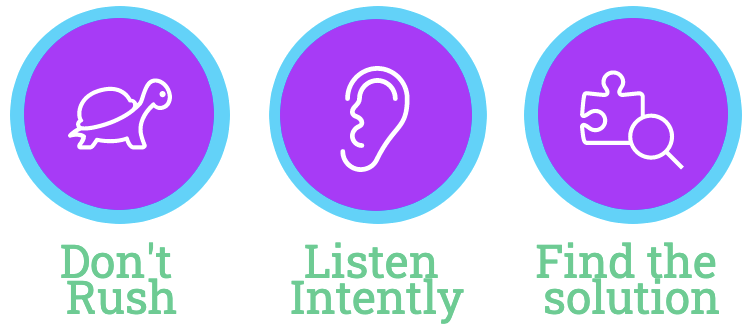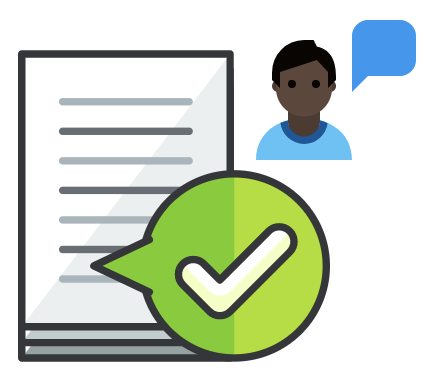 We understand that providing positive client experiences is a challenge for many customer care agents. Based on a study by Ruby Newell-Legne, it takes 12 positive experiences to make up for one unresolved negative experience. That is, if clients give you a chance! We provide customer experience technology and pride ourselves with our ability to enable great people, like you, with amazing technology that optimizes processes.
We understand that providing positive client experiences is a challenge for many customer care agents. Based on a study by Ruby Newell-Legne, it takes 12 positive experiences to make up for one unresolved negative experience. That is, if clients give you a chance! We provide customer experience technology and pride ourselves with our ability to enable great people, like you, with amazing technology that optimizes processes.
10 Phrases to Avoid in Customer Service
According to many sources, one-third or more of Americans would consider switching providers of a service after just one negative customer service experience. One major contributor to the success of a business and the quality of the customer care it provides depends on agents having exceptional communication with clients. Below is a list of some all too common phrases that agents should try and avoid.
 |
“Please calm down.” |  |
“Let me check.” |
 |
“Sorry, but it’s policy.” |  |
“We’ve never had this issue before.” |
 |
“I can’t help with that.” |  |
“You’re mistaken.” |
 |
“That’s not something I can do.” |  |
“Please visit our help center find the answer to that.” |
 |
“I don’t know the answer for that.” |  |
“That’s just how it is suppose to be.” |
Phrases to Help Agents Mitigate Complaints
| 1. | Please accept my/ our apologies. | 2. | Let me see if I can find a solution for you. |
| 3. | What I’ll do right now is … Then I can … | 4. | Let me see if I understand the issue, … |
| 5. | As an immediate solution, I’d like to suggest that you … | 6. | I can understand why that would be upsetting. |
| 7. | Thank you for pointing that out/ bringing this to our attention. | 8. | Sorry for the trouble this may have caused you. |
| 9. | I’m / we’re terribly sorry about that. | 10. | What would you like to see happen next? |
| 11. | I see your point / I understand. | 12. | I can help with that! |
| 13. | Let me see how we can make this better for you. | 14. | If I were in your shoes, I’d feel the same way. |
| 15. | I can appreciate that. | 16. | Thank you for your time and patience! |
| 17. | I apologize for any inconvenience this may have caused. |
Tips for Call Center Agents
|
Show empathy, not sympathy Let clients know you’re there to listen and help to the best of your ability. If the client feels that you genuinely want to help it will calm them down.
|
Don’t take it personally Remember when dealing with angry customers, they aren’t really frustrated with you. They’re generally angry with the company or their own mistake. Try not to take on those negative emotions yourself. |
|
Don’t challenge the veracity of what the client says. Instead lower your voice and slow your speaking speed slightly. Speaking quickly may come across as dismissive. |
Be patient Don’t rush to give an answer the second the customer finished the first sentences. Instead be an active listener. This helps to insure you provide the best help to the customer possible.
|
|
Communicate Thoughtful & Personalized Solutions Even the most experienced agents should never assume that they know more about the customer’s needs than they do. Such assumptions can lead to miscommunication and negative experiences. The best call center representatives are patient and are able to come up with well-thought-out and detailed solutions! |
Document & Respond to Tickets Efficiently Customers want answers quickly when they have questions. This means that agents need to be organized and able to think on their feet. This also means that agents need to be familiar and comfortable with the contact center technology. While agents usually receive training, it is a good idea for agents to familiarize themselves with tools like help desks, knowledge bases, and ticketing systems. |

Be a True Omnichannel Agent Today contact centers are responsible for more than just phone calls. As an agent you may be asked to interact with customers via email, live chat, or even on social media channels. Being able to adapt to the channel you’re working on is crucial to providing an omnichannel experience. |







